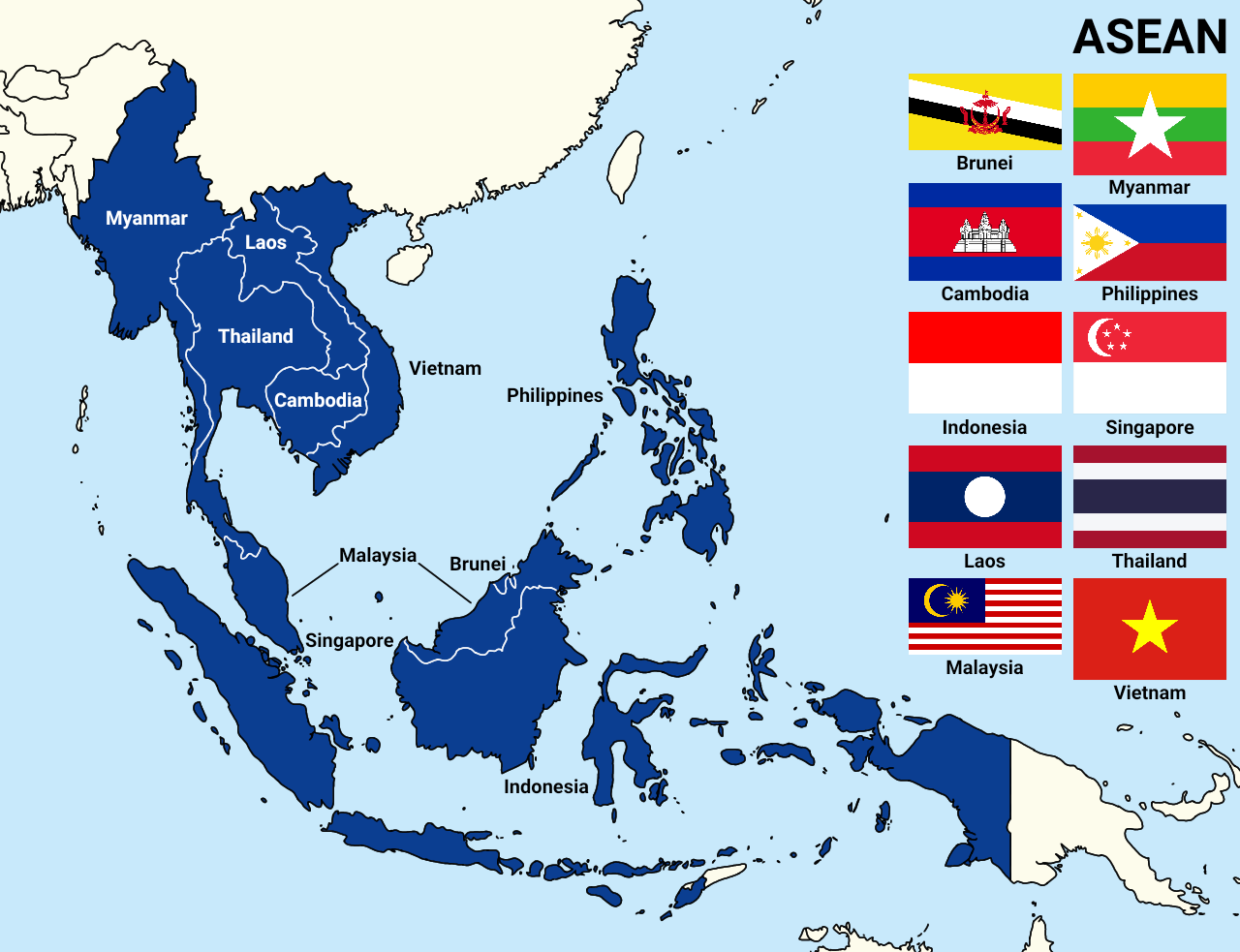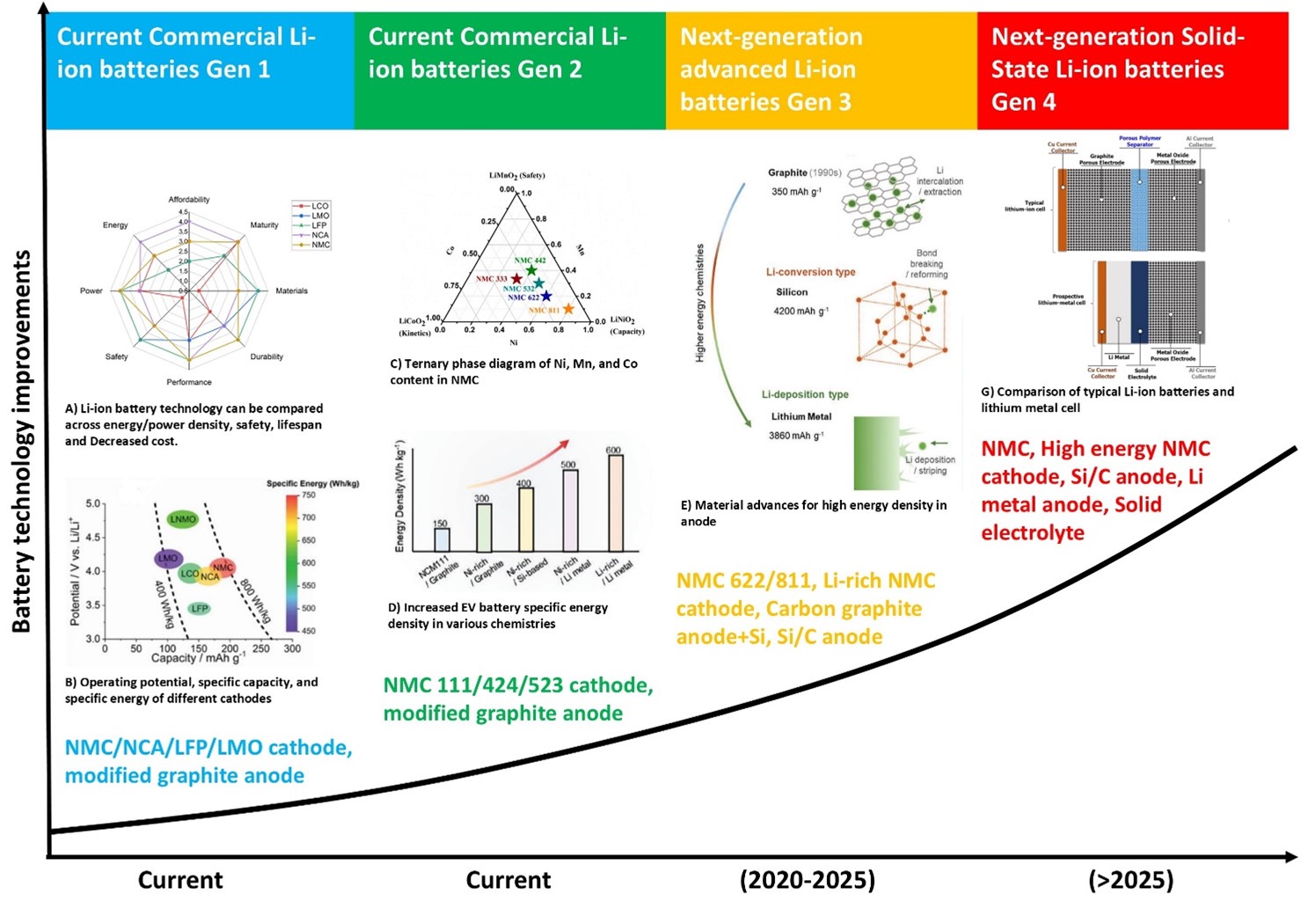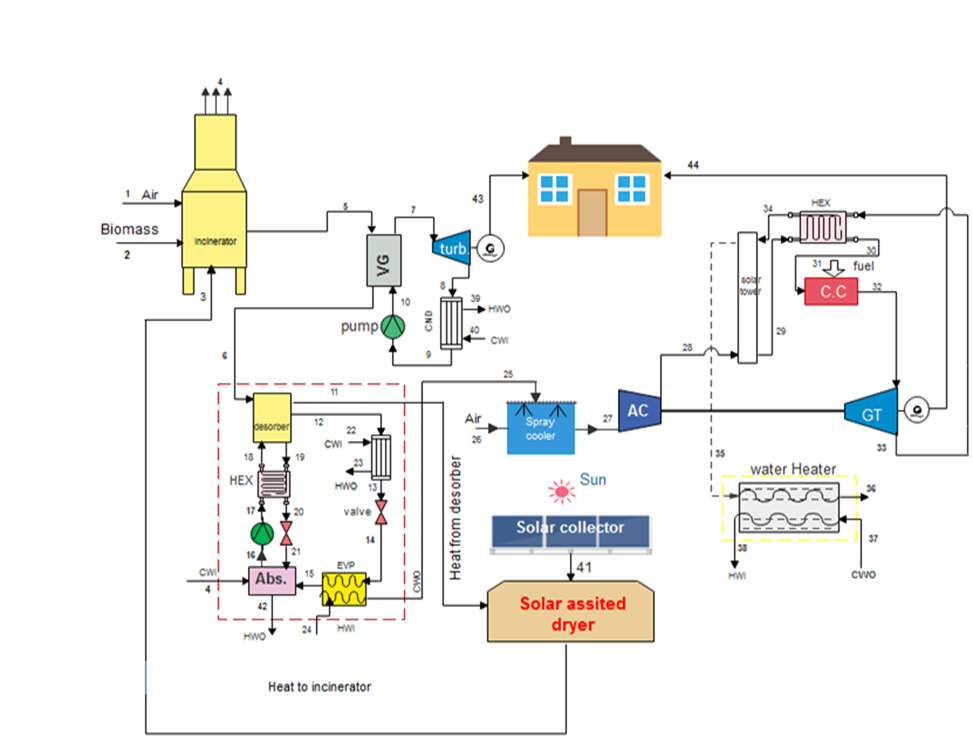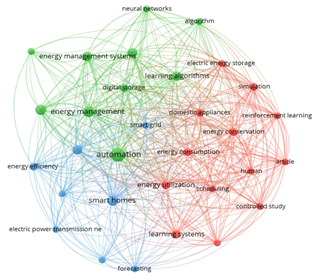A review of renewable energy development in ASEAN, policies, environmental and economic impact

Downloads
This study provides a comprehensive analysis of renewable energy development in ASEAN, focusing on policies, environmental impact, and economic implications. It examines the effectiveness of renewable energy policies across member countries, highlighting challenges in implementation and the need for effective policy frameworks to drive investment. The review explores environmental concerns, including land use change, soil erosion, water use, and waste generation, while emphasising the potential economic benefits such as GDP growth, job creation, and reduced dependence on energy imports. Addressing challenges and promoting sustainable development are crucial for achieving renewable energy targets in ASEAN.
Gungwu, W. 2017. Southeast Asia and continental and maritime powers in a globalised world. Building ASEAN Community. p. 9.
Wimalaratna, Y. P., Hassan, A., Afrouzi, H. N., Mehranzamir, K., Ahmed, J., Siddique, B. M., & Liew, S. C. 2022. Comprehensive review on the feasibility of developing wave energy as a renewable energy resource in Australia. Cleaner Energy Systems, p. 100021, DOI: https://doi.org/10.1016/j.cles.2022.100021.
Khuong P. M., McKenna R., Fichtner W. 2019. Analyzing drivers of renewable energy development in Southeast Asia countries with correlation and decomposition methods. Journal of Cleaner Production, 213, pp. 710-22.
ASEAN. 2016ASEAN plan of action for energy cooperation (APAEC) 2016-2025. ASEAN Centre For Energy; Accessed on 05-09-2023. [Available at: (2021-2025) ASEAN Plan of Action for Energy Cooperation (APAEC) 2016-2025 Phase II - ASEAN Centre for Energy (aseanenergy.org)].
Hui, L.C., Meng, G.T.K., Jue, H.L., Qian, E.V.W., Hassan, A., Afrouzi, H.N. and Mehranzamir, K., 2022. Impact Of Covid-19 on renewable energy sector and lessons learned: A case study on Malaysia. Future Energy, 1(3), pp.44-50.
Pratiwi S., Juerges N. 2020. Review of the impact of renewable energy development on the environment and nature conservation in Southeast Asia. Energy, Ecology and Environment, 5(4), pp. 221-239.
Vakulchuk R., Overland I., Suryadi B. 2023. ASEAN’s energy transition: how to attract more investment in renewable energy. Energy, Ecology and Environment, 8(1), pp. 1-16.
Dan N. L. 2022. Vietnam’s Renewable Energy Policies and Opportunities for the Private Sector. The National Bureau of Asian Research, pp. 1 - 8.
Guild J. 2019. Feed-in-tariffs and the politics of renewable energy in Indonesia and the Philippines. Asia & the Pacific Policy Studies, 6(3), pp. 417-431.
Muhammad-Sukki, F., Abu-Bakar, S.H., Munir, A.B., Yasin, S.H.M., Ramirez-Iniguez, R., McMeekin, S.G., Stewart, B.G. and Rahim, R.A., 2014. Progress of feed-in tariff in Malaysia: A year after. Energy policy, 67, pp.618-625.
Yuliani D. 144Is Feed-In-Tariff Policy Effective for Increasing Deployment of Renewable Energy in Indonesia?. The Political Economy of Clean Energy Transitions, 1.
Coalition for Action. 2019. Scaling up renewable energy investment in the Philippines, Accessed on 04-09-2023. [Available from: https://coalition.irena.org/-/media/Files/IRENA/Coalition-for-Action/Coalition-for-Action-_Scaling-up-RE-Investment-Philippines.pdf].
Scandrett G. 2017. Environmental Impacts of Renewable Energy Sources. Accessed on 02-09-2023. [Available from: https://www.adecesg.com/resources/blog/environmental-impacts-of-renewable-energy-sources/#:~:text=for%20electricity%20generation.-,Electricity%20from%20renewable%20energy%20sources%20produces%20between%2090%2D99%25%20less,from%20air%20pollution%20and%20GHGs.
Van de Ven, D. J., Capellan-Peréz, I., Arto, I., Cazcarro, I., de Castro, C., Patel, P. and Gonzalez-Eguino, M., 2021. The potential land requirements and related land use change emissions of solar energy. Scientific reports, 11(1), p. 2907.
Nong, D. H., Ngo, A. T., Nguyen, H. P., Nguyen, T. T., Nguyen, L. T. and Saksena, S., 2021. Changes in coastal agricultural land use in response to climate change: an assessment using satellite remote sensing and household survey data in Tien Hai district, Thai Binh Province, Vietnam. Land, 10(6), p.627.
Pimentel, D. and Krummel, J., 1987. Biomass energy and soil erosion: Assessment of resource costs. Biomass, 14(1), pp.15-38.
Hecht JS, Lacombe G, Arias ME, Dang TD, Piman T. 2019. Hydropower dams of the Mekong River basin: A review of their hydrological impacts. Journal of Hydrology. 568:285-300.
Energy IC. Is Renewable Energy Bad for the Environment? Accessed on 28-08-2023 [Available from: https://www.inspirecleanenergy.com/blog/clean-energy-101/does-renewable-energy-cause-pollution.
Los Huertos M. 2017. Narratives about Energy, Megaprojects, and the Ecology of Tropical Rivers: The Baram River Dam Project. EnviroLab Asia. 1(3), p. 4.
Erinle T. J., Hephzibah O. D., Moses A. O., Bamidele O. P. 2019. Environmental Impact of Renewable Energy Sources: Wind and Solar. 2nd International Conference, Center for Research, Innovation and Development (CRID) FPA, August 2019.
Adityatama D. W., Al Asyari M.R., Ahmad A. H., Riyanto N., Purba D., Erichatama N. 2023. Potential Closed-loop Geothermal Power Generation Application for Non-commercial Well in Indonesia: A Preliminary Study. In PROCEEDINGS, 48th Workshop on Geothermal Reservoir Engineering. Stanford University. pp. 1-9.
Fadilah S, Lestari R, Sahdan M, Khalid A. 2020. The Impact of Renewable Energy Consumption on the Economic Growth of the ASEAN Countries. International Journal of Energy Economics and Policy. 2020;10:602-8.
Mclaren M. Governments across Southeast Asia accelerate renewable energy investment to revive the pandemic-hit economies. 2021.
Cambodian government approves renewable energy projects: The Star; 2023. Acccessed on 23-08-2023. [Available from: https://www.thestar.com.my/aseanplus/aseanplus-news/2023/04/08/cambodian-government-approves-renewable-energy-projects.
Sokmean O. Over 500 Megawatts of Clean Power Projects Approved. 2023.
CS ENERGY CO. L. NAM NGUM 3: CHALEUN SEKONG ENERGY COMPANY LIMITED (CSE) 2023. Accessed on 09-09-2023. [Available from: https://csenergy.la/our-business/hydropower-plants/power-plants-under-construction/nam-ngum-3/?lang=en.
TheStar. 2022. Laos to focus on development of renewable energy. Accessed on 03-09-2023. [Available at: Laos to focus on development of renewable energy | The Star].
TheStar. 2023. Luang Prabang Mekong hydropower plant in Laos to be completed in 2030. Accessed on 03-09-2023. [ Available at: https://www.bing.com/search?q=Luang+Prabang+Mekong+hydropower+plant+in+Laos+to+be+completed+in+2030&cvid=fc41a8ada2ed48b9a76828e758c5f416&aqs=ed[ge..69i57.440j0j4&FORM=ANAB01&PC=W099].
BSP. ENERGY TRANSITION: Shell Brunei; 2023. Accessed on 10-09-2023 [Available from: https://www.bsp.com.bn/main/energy-and-innovation/energy-transition.
UNDP. 2023. ACCELERATING CLEAN ENERGY ACCESS TO REDUCE INEQUALITY (ACCESS). Accessed on 12-09-2023. [Available at: Accelerating Clean Energy Access to Reduce Inequality (ACCESS) | United Nations Development Programme (undp.org)].
Theangseng, H. (2021), ‘Cambodia Country Report’, in Han, P. and S. Kimura (eds.), Energy Outlook and Energy Saving Potential in East Asia 2020, Jakarta: ERIA, pp.55-72.
Raihan, A., Pavel, M.I., Muhtasim, D.A., Farhana, S., Faruk, O. and Paul, A., 2023. The role of renewable energy use, technological innovation, and forest cover toward green development: Evidence from Indonesia. Innovation and Green Development, 2(1), p.100035.
Chandak P. Supply Security Through Hydropower Should Enable Laos To Expedite Renewables Development, Says Report. 2023.
Afrouzi, H.N., Wimalaratna, Y.P., Ahmed, J., Mehranzamir, K., Liew, S.C., Wooi, C.L. and Siddiquea, B.M., 2021. A Comprehensive Review on Available/Existing Renewable Energy Systems in Malaysia and Comparison of Their Capability of Electricity Generation in Malaysia. Entropy and Exergy in Renewable Energy.
Handayani, K., Overland, I., Suryadi, B. and Vakulchuk, R., Integrating 100% Renewable Energy in Developing Country Electricity Systems Using the Leap-Nemo Framework. Available at SSRN 4526878.
Gonocruz, R.A.T., Yoshida, Y., Ozawa, A., Aguirre Jr, R.A. and Maguindayao, E.J.H., 2023. Impacts of agrivoltaics in rural electrification and decarbonization in the Philippines. Applied Energy, 350, p.121832.
ADMINISTRATION IT. SINGAPORE SOLAR ENERGY. 2021. https://www.trade.gov/market-intelligence/singapore-solar-energy
Govindarajan, L., Batcha, M.F.B.M. and Abdullah, M.K.B., 2023. Solar energy policies in southeast Asia towards low carbon emission: A review. Heliyon.
Lee D. VENA ENERGY ANNOUNCES THE 72MW TOLO WIND PROJECT ACHIEVING COMMERCIAL OPERATION STATUS IN INDONESIA 2019. Accessed on 27-08-2023. [Available from: https://www.venaenergy.com/news/vena-energy-announces-the-72mw-tolo-wind-project-achieving-commercial-operation-status-in-indonesia/.
Vogt I. ib vogt completes 116 MWp Coara Marang Solar Project in Malaysia 2023. Accessed on 27-08-2023. [Available from: https://www.ibvogt.com/ib-vogt-completes-116-mwp-coara-marang-solar-project-in-malaysia/#:~:text=The%20power%20plant%20is%20located,achieve%20maximum%20energy%20production%20efficiency.
Renewable E. Sunseap International and InfraCo Asia Partner to Form Joint Venture for Solar Power Project in Vietnam 2018. Accessed on 28-08-2023. [Available from: https://apac.edpr.com/sg/news/2018/sunseap-international-and-infraco-asia-partner-to-form-joint-venture-for-solar-power-project-in-vietnam.html.
Artelia. Bangui Bay Wind Farm seen as setting the trend in the development of renewable wind energy on this side of the world n.d. Accessed on 05-09-2023. [Available from: https://www.ph.arteliagroup.com/Services/bangui-bay-wind-farm/.
1 NN. Welcome to the Nam Ngiep1 Hydropower Project 2023. Accessed on 09-09-2023. [Available from: https://namngiep1.com/.
Mokan K, Lee T, Ramlan R. 2019. The critical success factors for renewable energy projects implementation. Int J Recent Technol Eng IJRTE, 8, pp. 223-226.
Othman K, Khallaf R. 2022. Identification of the Barriers and Key Success Factors for Renewable Energy Public-Private Partnership Projects: A Continental Analysis. Buildings, 12(10), p. 1511.
Haile Y, Min H. Success factors for renewable energy businesses in emerging economies. Management Research Review, 46(8), pp. 1091-1111.















